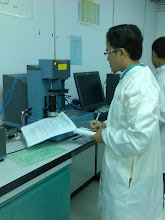In any age Ibn Sina, known in the West as Avicenna, would have been a giant among giants. He displayed exceptional intellectual prowess as a child and at the age of ten was already proficient in the Qur'an and the Arabic classics. During the next six years he devoted himself to Muslim Jurisprudence, Philosophy and Natural Science and studied Logic, Euclid, and the Almeagest.
He turned his attention to Medicine at the age of 17 years and found it, in his own words, "not difficult". However he was greatly troubled by metaphysical problems and in particular the works of Aristotle. By chance, he obtained a manual on this subject by the celebrated philosopher al-Farabi which solved his difficulties.
By the age of 18 he had built up a reputation as a physician and was summoned to attend the Samani ruler Nuh ibn Mansur (reigned 976-997 C.E.), who, in gratitude for Ibn Sina's services, allowed him to make free use of the royal library, which contained many rare and even unique books. Endowed with great powers of absorbing and retaining knowledge, this Muslim scholar devoured the contents of the library and at the age of 21 was in a position to compose his first book.
Despite such glorious tributes to his work, Ibn Sina is rarely remembered in the West today and his fundamental contributions to Medicine and the European reawakening goes largely unrecognised. However, in the museum at Bukhara, there are displays showing many of his writings, surgical instruments from the period and paintings of patients undergoing treatment. An impressive monument to the life and works of the man who became known as the 'doctor of doctors' still stands outside Bukhara museum and his portrait hangs in the Hall of the Faculty of Medicine in the University of Paris.






0 comments:
Post a Comment